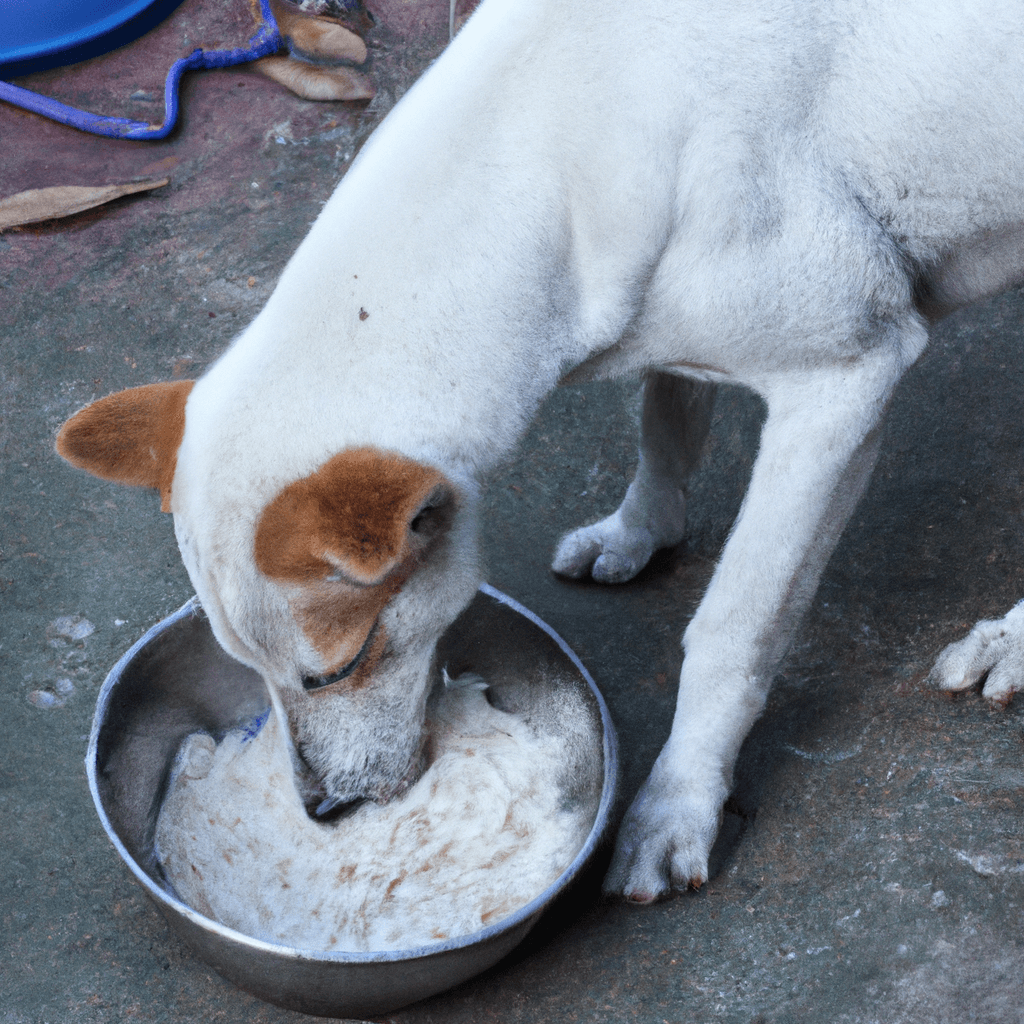Can dogs eat jasmine rice
Can dogs eat jasmine rice? It is a common question among dog owners since jasmine rice is a staple part of many diets. While there are a few benefits to feeding jasmine rice to your pup, there are also potential risks involved.
Understanding the potential benefits and risks can help you make an informed decision about whether or not to feed jasmine rice to your dog. In this article, we will discuss the potential benefits and risks of feeding jasmine rice to your pup, as well as some tips for making sure your dog enjoys its jasmine rice meal.
The Benefits of Feeding Your Dog Jasmine Rice
Feeding your dog Jasmine rice can be a great way to improve and maintain their overall health. This type of rice is packed with essential nutrients that can offer your pup a variety of health benefits. Here are some of the most important ones to consider.
First, Jasmine rice is a great source of energy. This is especially important for active dogs. The carbohydrates found in this type of rice will give your pup the fuel they need to stay active and healthy. Second, Jasmine rice is a good source of essential vitamins and minerals, such as magnesium, calcium, and iron.
These can help to keep your pup’s bones and muscles strong, as well as support its immune system. Third, Jasmine rice can also help to reduce inflammation in your dog’s body. This is important for overall health and can even help to alleviate the symptoms of certain conditions.
Finally, Jasmine rice is easy to digest, so it won’t cause any digestive upset in your pup. This is especially important for dogs with sensitive stomachs. Overall, feeding your dog Jasmine rice can be a great way to improve their overall health. The energy, vitamins, minerals, and other nutrients found in this type of rice can help to keep your pup active and healthy for years to come.
How to Cook Jasmine Rice for Your Dog
Cooking jasmine rice for your pup is an easy and delicious way to make sure they get the nourishment they need while still enjoying their meal. Here’s how to make the perfect jasmine rice for your pup:
- Measure out one cup of jasmine rice.
- Rinse the rice until the water runs clear. This will help get rid of any extra starch and make the rice easier to digest.
- Put the rinsed rice in a pot and add two cups of water.
- Bring the water to a boil, then reduce the heat to low, cover the pot, and let it simmer for about 20 minutes.
- Turn off the heat and let the rice sit for 10 minutes. This will help the rice absorb all of the liquid.
- Fluff the rice with a fork and serve it up to your pup! Now your pup can enjoy a delicious and nutritious meal of jasmine rice. Bon appétit!
The Nutritional Value of Jasmine Rice for Dogs
If you’re thinking of adding some variety to your pup’s diet, jasmine rice is an excellent choice that can provide your pup with a number of important nutrients. Jasmine rice is a type of long-grain rice that has a nutty, almost floral aroma and a slightly stickier texture than other types of long-grain rice.
As with other types of rice, jasmine rice is a good source of carbohydrates and provides your dog with energy. Jasmine rice is also a good source of several essential vitamins and minerals. It contains B vitamins, which are important for a healthy metabolism and for healthy skin and coat.
It also contains minerals such as magnesium, phosphorus, and zinc, which are important for strong bones and muscle development. In addition to these important vitamins and minerals, jasmine rice also contains a number of important antioxidants.
Antioxidants are important for fighting off free radicals, which can damage cells and lead to disease. Jasmine rice is also a good source of dietary fiber, which can help support a healthy digestive system. When it comes to feeding jasmine rice to your pup, it’s important to make sure it’s cooked properly.
Jasmine rice should be cooked in plenty of water until it’s tender and all the liquid is absorbed. This will ensure that it’s easy to digest and won’t cause any digestive upset. Once it’s cooked, it can be served as a side dish or mixed into your pup’s kibble.
Overall, jasmine rice is an excellent choice for adding variety to your pup’s diet. Not only is it a good source of energy, but it also provides important vitamins, minerals, and antioxidants that are essential for good health. Just make sure it’s cooked properly before serving it to your pup.
Is Jasmine Rice a Healthy Substitute for Dog Food?
No, Jasmine Rice is not a healthy substitute for dog food. While it is true that rice is a carbohydrate that can be found in some dog foods, it lacks the protein and other essential nutrients that dogs need to stay healthy. Dogs require a balanced diet that includes proteins, fats, carbohydrates, vitamins, minerals, and other essential nutrients.
Rice alone is not enough to provide all of these nutrients. If a dog is fed only rice, it may become malnourished and suffer from health issues. To ensure that a dog is getting the proper nutrition, it is best to feed them commercial dog food that is formulated specifically for their needs.
Common Questions About Dogs Eating Jasmine Rice
Q: Is it safe for dogs to eat jasmine rice?
A: Yes, jasmine rice is generally safe for dogs to eat in moderation. As with any human food, however, it’s important to make sure the rice is plain and has not been seasoned with any seasonings or oils that could potentially be harmful to your pet.
Q: How much jasmine rice can I feed my dog?
A: Jasmine rice should only be fed to your dog in moderation. As a general rule, feed your dog no more than 10% of their total daily calorie intake as jasmine rice.
Q: Is cooked or uncooked jasmine rice better for my dog?
A: Cooked jasmine rice is typically the safer option for dogs because it’s less likely to contain bacteria that could be harmful to your pet. However, if you choose to feed your dog uncooked jasmine rice, make sure to cook it thoroughly before serving it to your pet.
Q: Can jasmine rice help with my dog’s digestive issues?
A: Jasmine rice can be a helpful part of a diet designed to alleviate digestive issues in dogs. The bland, starchy nature of jasmine rice can help to soothe the digestive system, and can also help to increase the amount of water in the digestive tract. However, it’s important to talk to your veterinarian before making any changes to your pet’s diet.
Can Jasmine Rice Help with Dog Allergies?
No, jasmine rice won’t help with dog allergies. Allergies in dogs are caused by the proteins in their saliva, skin, and fur. The proteins enter our bodies and stimulate the production of antibodies which in turn cause the allergic reaction.
Therefore, no matter how much jasmine rice your pup consumes, it won’t make a difference in their allergies. The best way to manage dog allergies is to reduce your pup’s exposure to the proteins that cause the reactions. This may include bathing them more often, brushing their fur regularly, and using air purifiers and HEPA filters to reduce the amount of pet dander in your home.
How to Spot Signs of Digestive Issues in Dogs Eating Jasmine Rice
Does your pup seem to be having trouble with its digestion? If so, it may be worth looking into if they’re eating jasmine rice. Here are a few signs that may indicate your pup is having digestive issues related to jasmine rice:
- Abnormal Stool: If your dog’s stool becomes looser, more frequent, and more malodorous, it could be a sign that the jasmine rice is causing digestive issues.
- Vomiting: Vomiting can be a sign that your pup is having difficulty digesting its food. If you notice your pup vomiting after eating jasmine rice, it’s a good idea to seek out a vet’s advice.
- Loss of Appetite: If your pup suddenly stops eating or begins to have a reduced appetite, it could be an indication that the jasmine rice is not agreeing with them.
- Lethargy: If your pup suddenly seems more lethargic than usual, it could be a sign of digestive issues. If you notice any of these signs, it’s best to take your pup to the vet to get them checked out. Your vet can help determine if the jasmine rice is causing your pup’s digestive issues, and can provide advice on how to best treat them.
The Pros and Cons of Using Jasmine Rice as a Dog Treat
Jasmine rice is an increasingly popular dog treat among pet owners looking for a healthier alternative to traditional dog snacks. It is a fragrant, long-grain variety of rice that can be served either cooked or uncooked. Just like with any other food, there are both pros and cons to using jasmine rice as a dog treat.
The Pros
- Nutritionally Rich: Jasmine rice is a good source of carbohydrates and contains several essential vitamins and minerals like B vitamins, magnesium, phosphorus, and iron. It also contains some healthy fats and proteins.
- Digestibility: Jasmine rice is easy to digest, making it ideal for dogs with sensitive stomachs or digestive issues.
- Variety: Jasmine rice can be served in a variety of ways, such as cooked with vegetables, mixed with yogurt, or served raw. You can even make homemade treats with it.
The Cons
- Potential Allergies: Some dogs may be allergic to jasmine rice and may experience an upset stomach after consuming it.
- High in Calories: Jasmine rice is high in calories, so it’s important to monitor your dog’s intake to avoid weight gain.
- Expense: Jasmine rice is more expensive than traditional dog treats, so it may not be the most cost-effective option for pet owners. Overall, jasmine rice can be a great dog treat if used in moderation. Always consult with your veterinarian before introducing any new food to your pet’s diet.
In conclusion, dogs can eat jasmine rice in moderation as a treat. It is important to check with your veterinarian before giving your dog any new food, including jasmine rice, to ensure that it is safe for your dog. Jasmine rice can provide a healthy and tasty treat for your pup, but should not be a major part of their diet.




